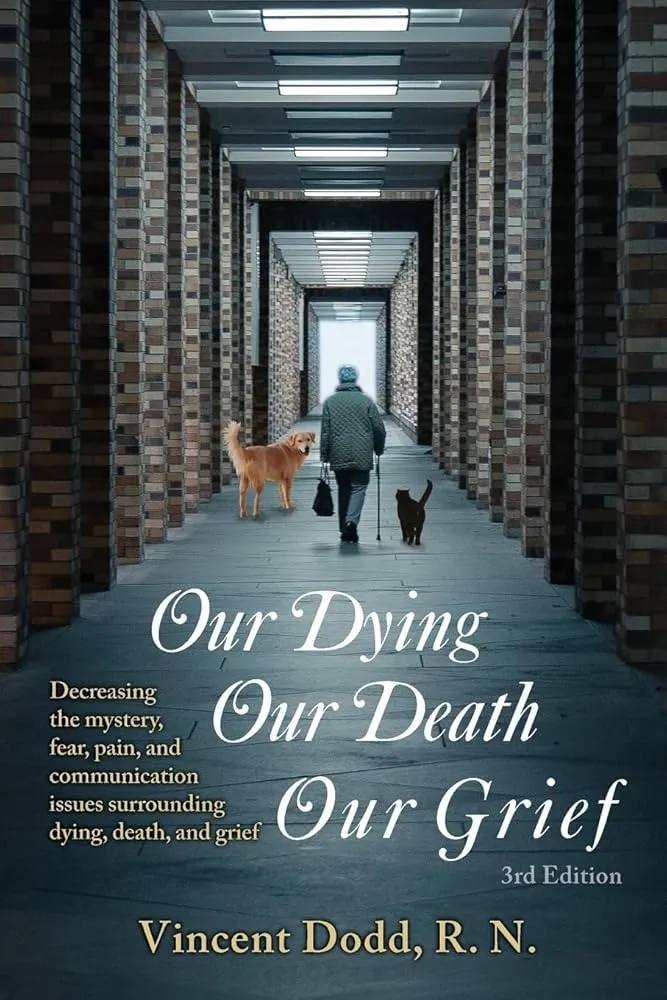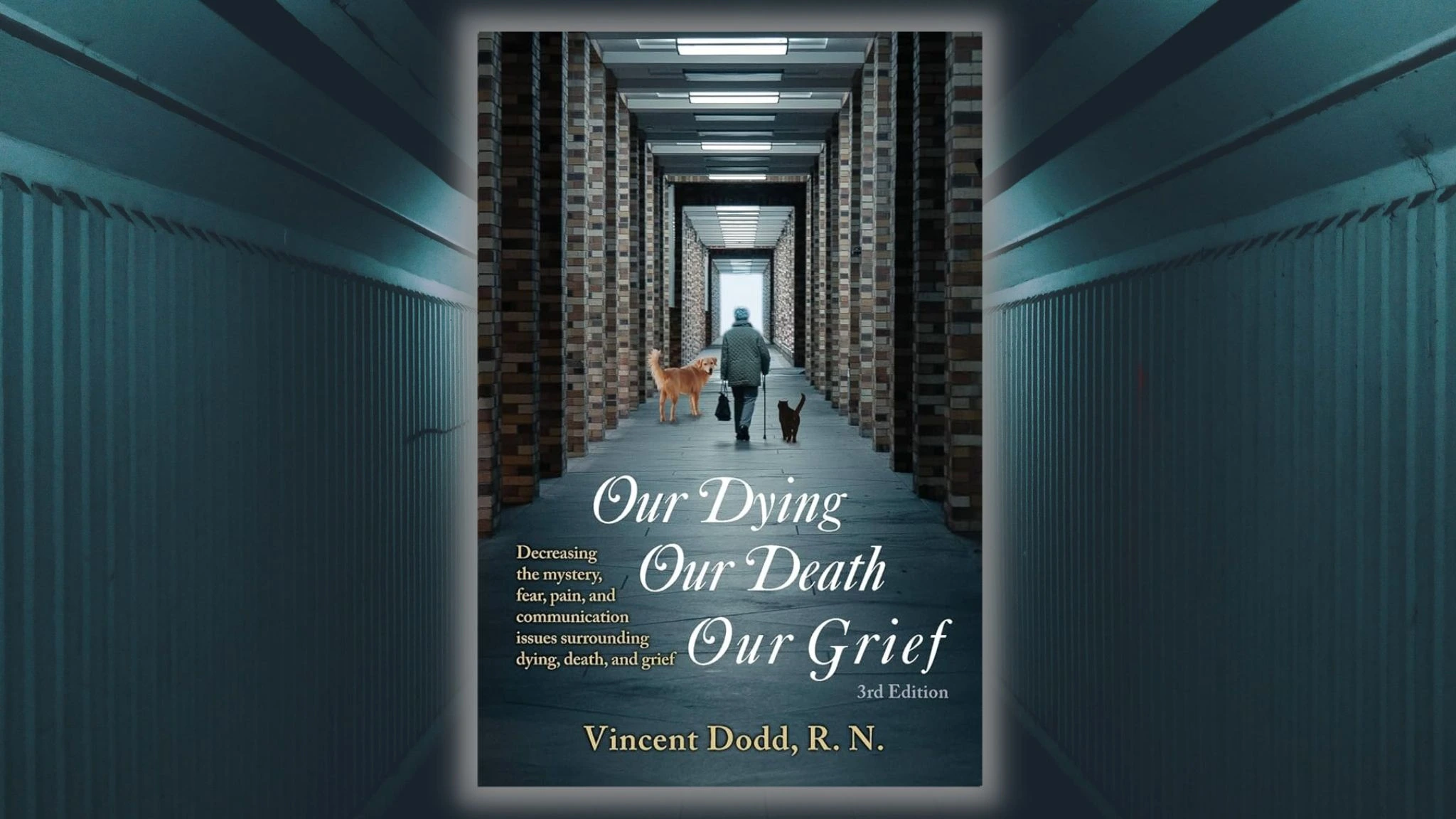Our Dying, Our Death, Our Grief by Vincent Dodd
As a Registered Nurse, Vincent Dodd has sat with many, many patients on their deathbeds, and comforted families dealing with a range of emotions and hard decisions. Over the course of his experiences, he’s developed a unique perspective on death and dying.
And he is committed to making the process as gentle and painless as possible through the recently published second edition of his intelligent, informative and very readable work, Our Dying, Our Death, Our Grief (Gatekeeper Press).
In a perfect world, Vincent would aspire to the words of Leonardo da Vinci who said, “As a well-spent day brings happy sleep, so a life well used brings happy death.”
OPEN COMMUNICATION THROUGH THE ENTIRE PROCESS
At the crux of Vincent’s insights is the belief that open communication between patient, family and healthcare professionals is the key to comfort, as well as necessary choices. He cites the hospital cliché fed by Hollywood and basically every medical TV show which suddenly has the medical team closing the curtains around patients and asking families to adjourn outside in the waiting room. While such situations might be for the families’ own good, Vincent suggests that those families have a right to know every single step in the process.
“If we shift the focus away from the interest in drama, we will see the pain and suffering of the procedure, and often its futility when death is imminent,” says Vincent, which might help a family come to a particular decision regarding their loved ones.
“I do not wish to influence but only to inform…I apologize, and yet I do not apologize, for the frankness of the material. I have always worked to promote the acceptance of humanness.”
It’s eye-opening, yet not totally shocking, to see statistics indicating that the majority of healthcare spending occurs during the last six months of a person’s life, making one wonder whether the time, treatments and attention shown for terminal patients might be shifted to patients whose lives might still be saved. It is “the will to live” that drives terminal patients and their families to surge forward and seek cures at any expense.
Then there is the matter of dying with dignity. Vincent cites the 94-year-old man sent to the hospital with all the signs of terminal illness. His internal bleeding, says Vincent, would have been a peaceful way to go. But in the spirit of doing everything to save the patient dealing with only an ounce of hope, the decision was made for the intrusive procedure to place a tube down the nose to the stomach to search for other potential problems. How necessary was this given the existing diagnosis, asks Vincent.
A TECHNICAL YET COMPASSIONATE APPROACH
Vincent takes great care to describe why some procedures are performed, but also suggests that “why not” should sometimes be considered. “Being able to accept death when it is imminent and inevitable, and allowing the body to die peacefully with respect and dignity, is the ultimate goal.”
In Our Dying, Our Death, Our Grief, author Vincent Dodd has taken decades of practical knowledge and hours and hours of hands-on experience to offer a book designed to make the process of one of life’s difficult periods as understanding and comforting as possible to patients and families alike. There is no denying the deep emotions and pain that come along with death, but if this work can do anything to help people deal better with the fundamental machinations at work, then his job is done.
This is a highly readable, well-thought-out narrative chock full of ideas and strategies to consider. It is technical when it needs to be, but keeps the focus on trying to determine what is best for the affected parties. Vincent opens the door on a difficult subject and tackles it head on – providing a valuable service and much to consider.
“Becoming comfortable with death is a process; be gentle as you learn to lighten the fear and burden of death and the core shakings of grief. For if love, respect or appreciation is involved, lightening is all that can be obtained.”
About the Author:
Vincent Dodd was born in southeast Louisiana and now resides in Austin, Texas. After graduating from Louisiana Tech University’s Nursing School in 1985, he worked for three years in the emergency department in Charity Hospital in downtown New Orleans. He spent 19 of his 21 years in teaching hospital emergency departments and two years in intensive care. Vincent left nursing and began a 12-year career in law enforcement. After more than 33 years of hands-on assistance to people in personal crisis, he is driven to contribute on a larger scale through his writing and public speaking. He is the author of Suffer Less in Life & Work, Suffer Less in Death, and founder of The Yandle, John D. Sheehan, and Daigle Foundation, also known as The Human Bonding Foundation.




